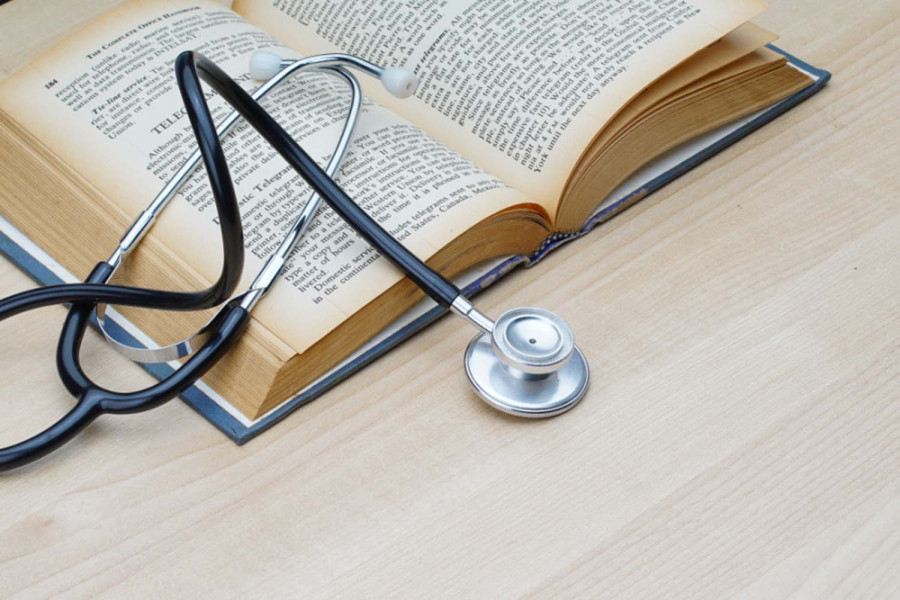Health
Majority of MBBS and BDS graduates unfit to practise medicine
Of the 2,039 doctors who appeared in the licensing tests held from Thursday to Saturday, only 863 got pass marks.
Arjun Poudel
Around 58 percent of medical doctors who pursued MBBS and BDS degrees and sat for licensing exams of the Nepal Medical Council have failed to get pass marks.
The council is the national regulatory body of medical doctors and dentists.
“Those who do not secure pass marks cannot practise medicine,” said Dr Krishna Prasad Adhikary, registrar at the Council. “They cannot see patients unless they pass the licensing test.”
Of the total 2,039 doctors—1,686 holding MBBS and 353 with BDS degrees—who appeared in the licensing tests held between Thursday and Saturday, only 863 (740 MBBS doctors and 123 BDS doctors) secured pass marks. Over 65 percent of BDS doctors, the possible dentists, failed the licensing test.
This is not the first time such a large number of medical doctors failed to secure the minimum pass marks and get to practise medicine in the country. Officials at the council said up to 70 percent of doctors would fail to secure pass marks in the licensing tests in the past. The success rate of doctors who pursued medical degrees from foreign universities used to be low compared to those who passed out from national universities.
The council said that it would not disclose the identity and other details of the examinees.
Experts, as well as academicians who have for long been involved in medical practice, warned that licensing exams are not just about getting a certificate to practise medicine but broadly linked to the quality of the country’s healthcare.
“It has a direct link to human health and around two thirds of doctors failing the licensing test means the problem is arguably more serious than the Covid pandemic,” said Professor Jagdish Prasad Agrawal, former dean at the Institute of Medicine, Tribhuvan University. “The quality of medical doctors has been declining and the entire population has to face the consequences.”
To qualify as a medical practitioner, a doctor must secure at least 50 percent marks in the licensing exam. Agrawal said even if engineering graduates were allowed to take the medical licensing test, they would secure 30 to 40 percent marks.
Experts say the quality of medical education has been compromised with underachievers, who do not deserve to practise medicine, entering the medical profession.
“It is a good thing that those who are incompetent, who do not have the basic knowledge of medicine, failed the licensing test,” said Professor Arjun Karki, former vice-chancellor at the Patan Academy of Health Sciences. “If such people could clear the test, our public health could be in jeopardy.”
The World Health Organisation said inaccurate diagnosis, medical errors, inappropriate or unnecessary treatment, inadequate or unsafe clinical facilities and practices, and healthcare providers who lack adequate training and expertise are present in all countries.
But the situation is worse in low- and middle-income nations.
Doctors say it would be foolhardy not to start digging for the cause of the higher failure rate in the medical licensing tests: potentially the health of 29million Nepalis are on the line.
A large number of examinees can’t pass the test even after sitting the exams multiple times. According to the council, one doctor has failed 34 licensing tests.
The WHO, the UN health agency, says low-quality health care is increasing the burden of illness and health costs globally.




 19.69°C Kathmandu
19.69°C Kathmandu















